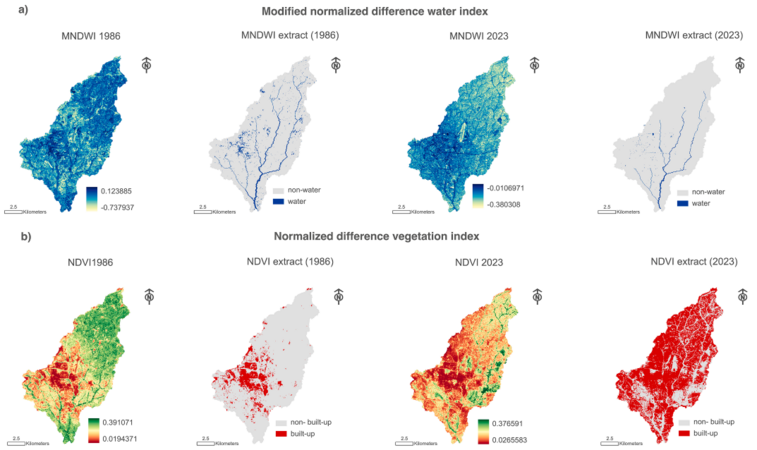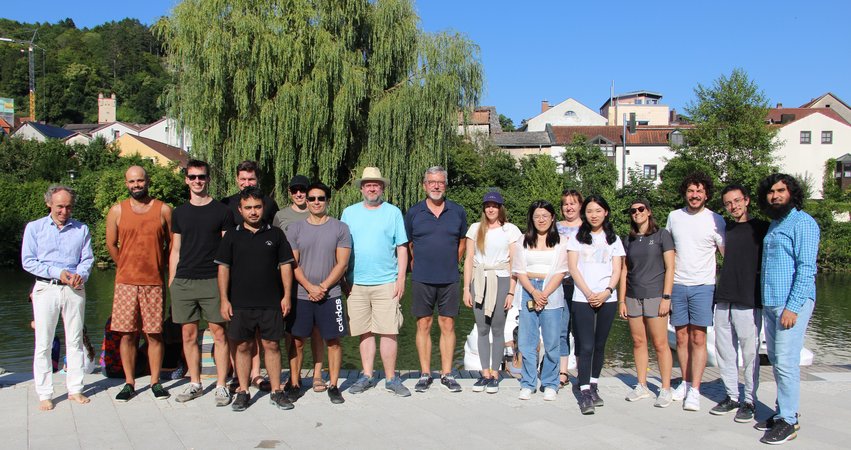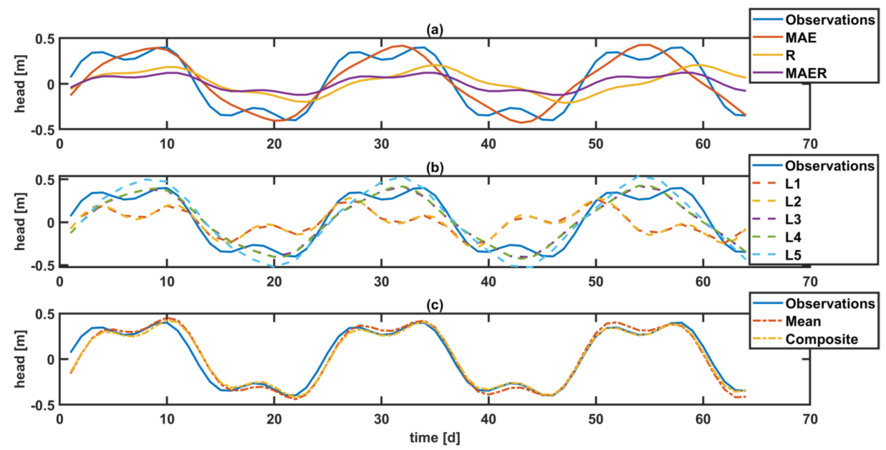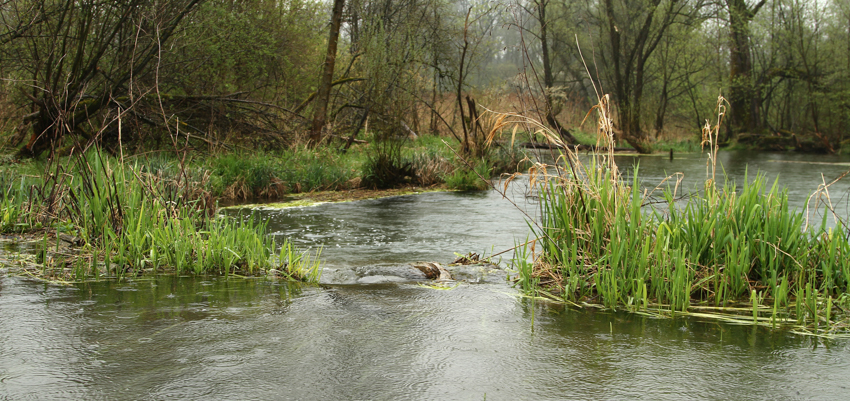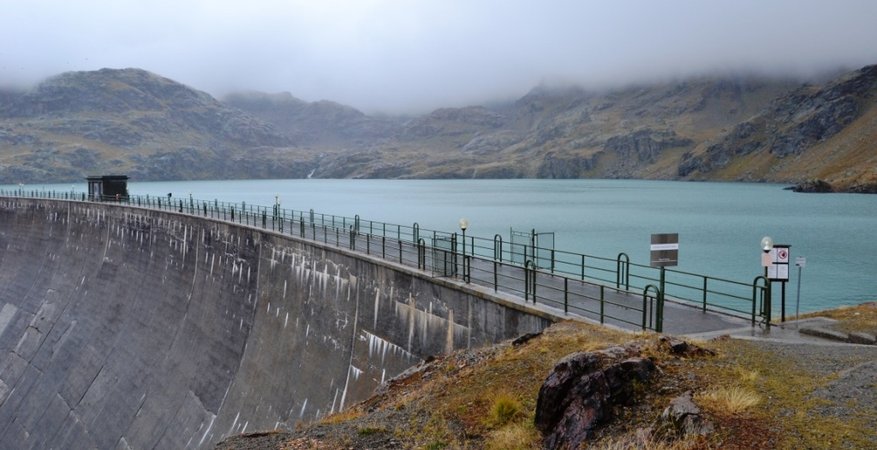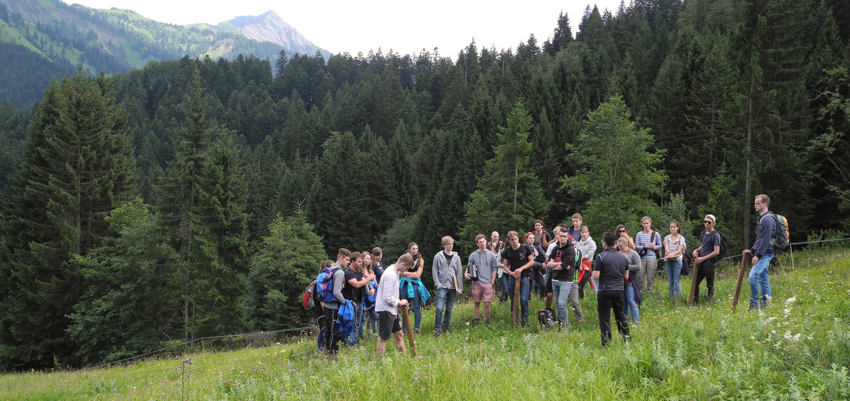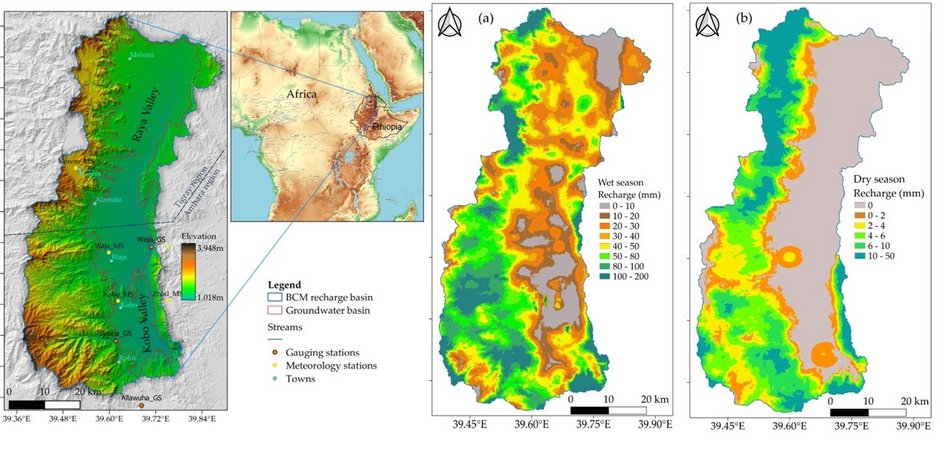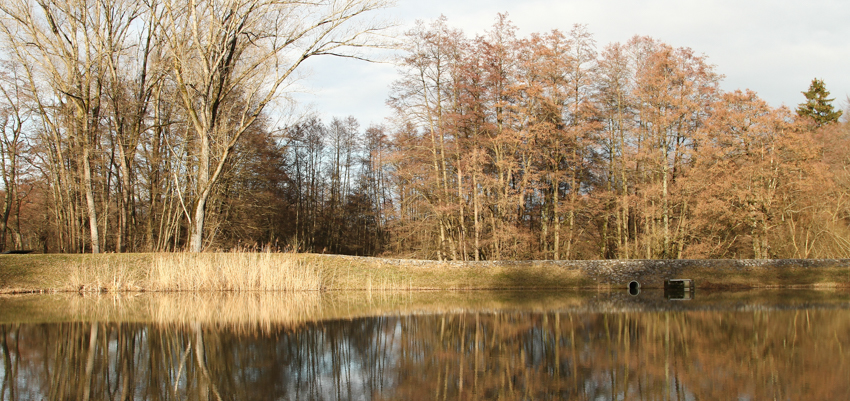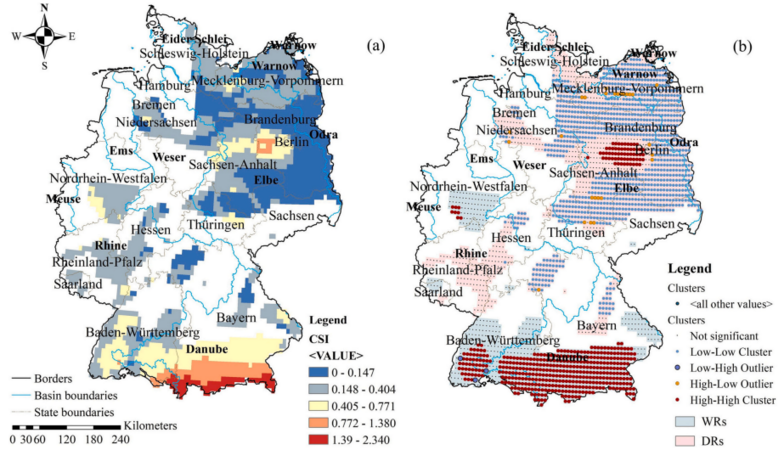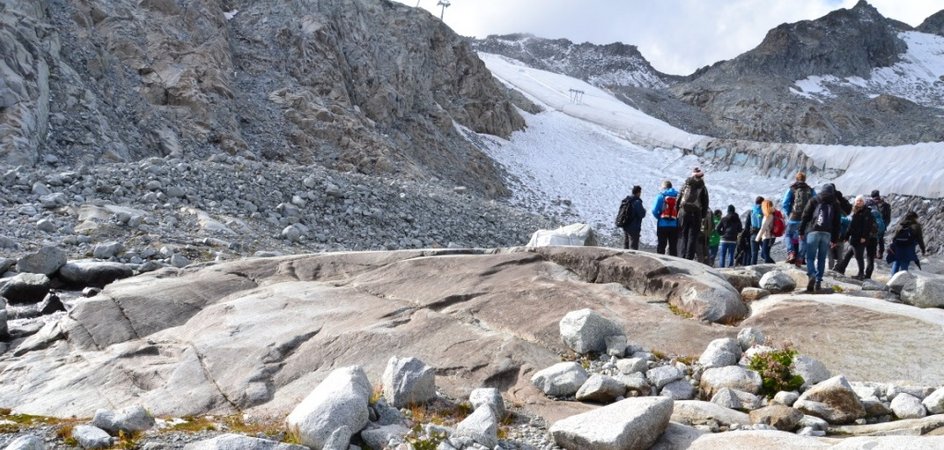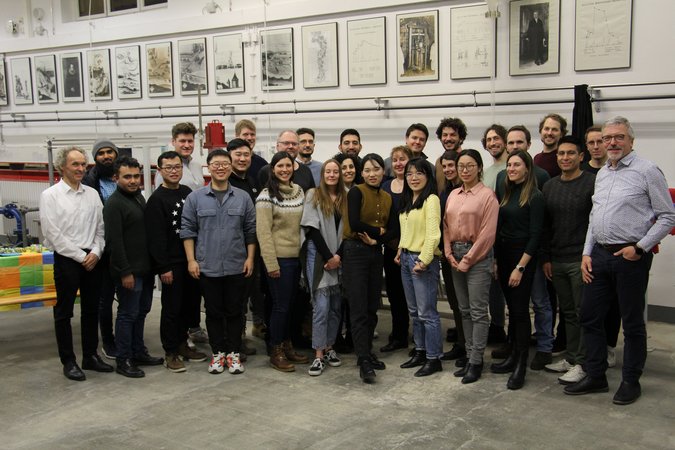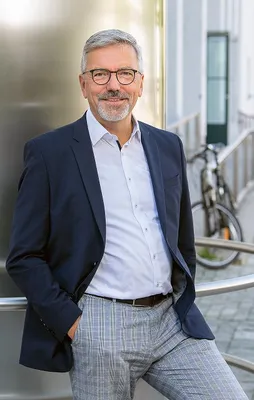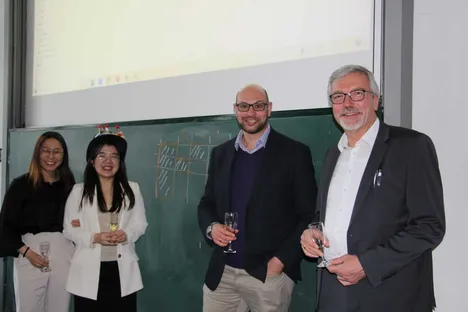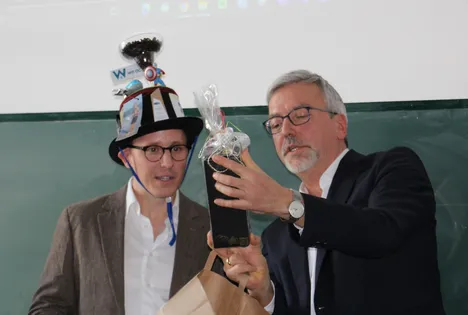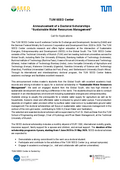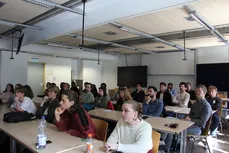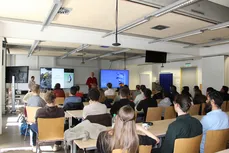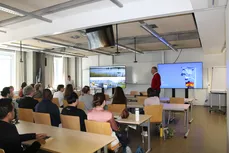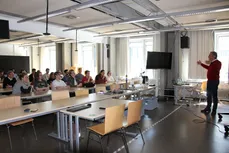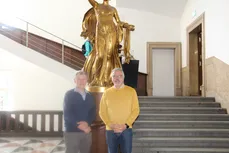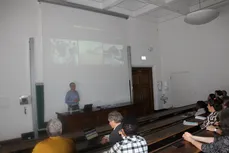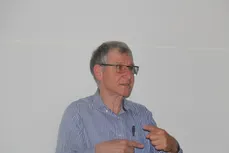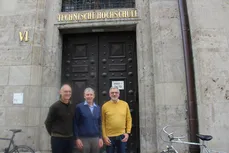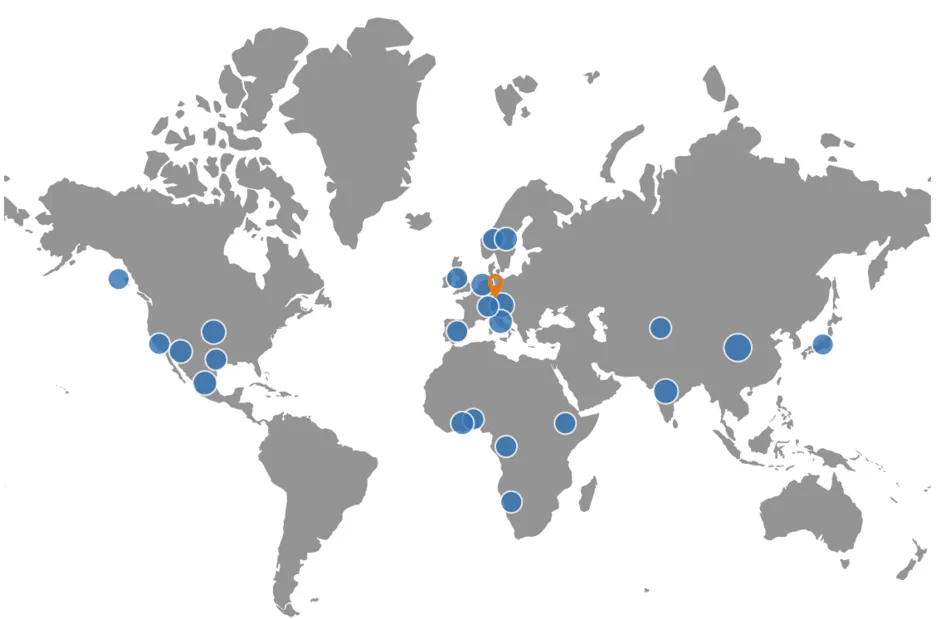Welcome to the website of the Chair of Hydrology and River Basin Management (HFGM) at the Technical University of Munich (TUM)!
The mission of our Chair is the analysis of hydrological data and processes as well as the development of applied hydrological models for the sustainable management of water resources in Bavaria, Germany and worldwide.
Efforts in this direction have been made in the last 13 years through research in different areas, mainly focusing on hydrological extremes (floods and droughts), Integrated Water Resources Management, Alpine Hydrology, Urban Hydrology, mixing processes in groundwater systems, water quality, remote sensing and hydrological digitization.
Internationalization has become one of the strengths of our chair. Scientific collaborators from all over the world contribute to support our team here in Munich. This internationality provides us with useful experience, which we also use for the education of our environmental engineering students.
You can find more information about our chair, our research and our teaching on this website. You are cordially invited to browse our web pages. Visit us again soon!
Ph.D. Seminar
Nature-based Solutions in Urban and Rural Environments
by Prof. Dr.-Ing. Stephan Pauleit
Chair of Strategic Landscape Planning and Management, Technical University of Munich
[14.07.2025]
See meeting details here.
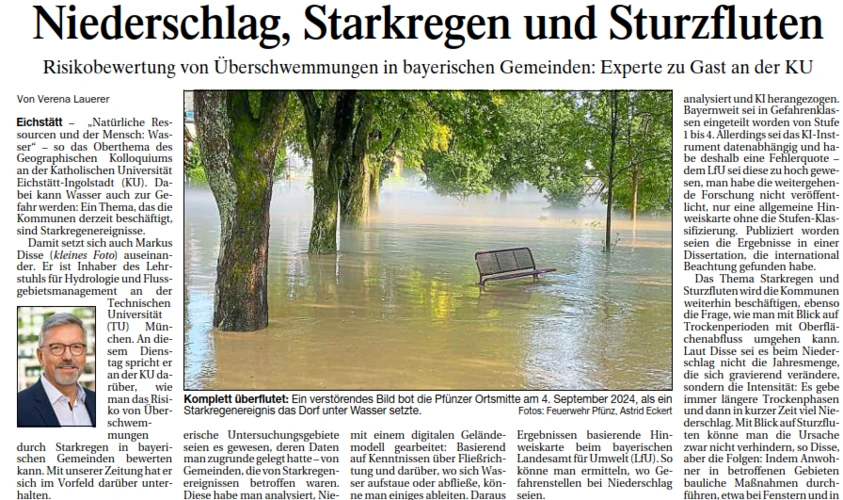
Successful dissertation defense by Ms. Lu Tian
Congratulations to Ms. Lu Tian on the successful defense of her doctoral thesis on "Dynamic spatiotemporal drought cascades in Central Asia from the cross-system drought continuum perspective".
Date: 10.03.2025
Chairman:
Prof. Dr. rer. nat. habil. Brigitte Helmreich, CEE - Department of Civil and Environmental Engineering - Department of Urban Water Management
Examiners:
1. Prof. Dr.-Ing. Markus Disse, CEE - Department of Civil and Environmental Engineering - Department of Hydrology and River Basin Management
2. Prof. Dr. Simon Gosling, ZExtern - University of Nottingham
3. Dr. rer. silv. Annette Menzel, Second Member BGU, Life Science Systems - Department of Ecoclimatology
Invited talk by Prof. Simon Gosling
Modelling Past, Present and Future Surface Hydrological Change at the Global Scale
We are pleased to invite you to an invited talk by Professor Simon Gosling from the School of Geography, University of Nottingham, UK on:
Modelling Past, Present and Future Surface Hydrological Change at the Global Scale
Abstract:
Professor Gosling will discuss how global hydrological modelling has been used to improve our understanding of past and future changes in water scarcity, droughts, and floods. The seminar will explore the models used in this area of science and community efforts to compare them. He will also present evidence for the attribution of historical trends in extreme river flows to climate change, discuss the extent to which recent hydrological changes exceed planetary boundaries for freshwater, and share projections of future water scarcity and drought across the globe.
Speaker Bio:
Professor Simon Gosling is a global-scale climate risk analyst and knowledge integrator. His expertise spans climate change impact assessment, flooding, droughts, water scarcity, heatwaves, labour capacity, human health, and compound risks. His work employs numerical environmental modelling, uncertainty assessment, and knowledge integration to enhance adaptation and resilience strategies at national, regional, and global levels.
🗓 Date: March 11th, 2025
⏰ Time: 10:00 AM – 11:30 AM (CET)
📍 Location: Room 1713, TUM
🔗 Zoom Link: https://tum-conf.zoom-x.de/j/64807950471?pwd=PzJ58q5l9nOuiZ6eHuhlYGvezQDvIC.1
Meeting-ID: 648 0795 0471
Kenncode: 024690
Successful doctoral defense from Mr. Schaffhauser, Timo
Congratulations to Timo Schaffhauser for the successful defense of his doctoral thesis on the topic „Alpine Hydrology under Different Climate Model Generations“.
Date: 07.02.2025
Chairman:
Prof. Dr. rer. nat. Niklas Boers, TUM School of Engineering and Design - Earth System Modelling
Examinators:
1. Herr Prof. Dr.-Ing. Markus Disse, TUM School of Engineering and Design - L.f.Hydrologie u. Flussgebietsmanagement
2. Herr Prof. Dr. Martin Volk - Head of Department of Computational Landscape Ecology (CLE) (Co-lead), UFZ
3. Frau Prof. Dr. Nicola Fohrer, Director of the Institut für Natur- und Ressourcenschutz Abteilung für Hydrologie und Wasserwirtschaft
TUM SEED Center | Announcement of a Doctoral Scholarships “Sustainable Water Resources Management”
[01.2025]

This announcement invites master’s students from the Global South with excellent academic track records and strong motivation to apply for a doctoral scholarship in “Sustainable Water Resources Management”. We seek an engaged student from the Global South, who has high interest in sustainable development and making a difference in the world.
Pressemitteilung - aktuelle Presse zur BN-Tagung in Ebrach
[11.2024]

- Wald in der Klimakrise: Ist ein Naturwald besser gewappnet?, BR vom 20.10.24 von Kirsten Zesewitz, zum Anhören mit Interviews. Hitze, Trockenheit und Starkregen machen den bayerischen Wäldern zu schaffen. Naturwald oder Wirtschaftswald: Wie ein Wald aussehen muss, damit er der Klimakrise trotzen kann, das wurde am Wochenende auf einer Tagung im Steigerwald heiß diskutiert. https://www.br.de/nachrichten/bayern/wald-in-der-klimakrise-ist-ein-naturwald-besser-gewappnet,URjyy6W
- Tagung "Wald.Wasser.Klima": Experten fordern Umdenken im Umgang mit Wälder, MP vom 24.10.24; Der volle Saal im Klosterbräu Ebrach bei der Tagung "Wald.Wasser.Klima" zeigt, wie sehr diese Themen Vertretende von Forst, Landwirtschaft, Naturschutz sowie Bürgerinnen und Bürger beschäftigen. Fachleute aus ganz Deutschland stellten im Rahmen der Tagungsreihe "Naturerbe Buchenwälder" des Bund Naturschutz (BN) am vergangenen Wochenende aktuelle Forschungsergebnisse vor. Das teilt der Veranstalter in einem Schreiben mit, dem folgende Informationen entnommen worden sind.
- Klimaschutz: neue Wege gehen im Wald, FT Has, 28.10.24; LKR Haßberge – Damit die Regenerationswirkung wieder funktioniert, brauchen die Wälder Hilfe – und weniger Eingriffe.
- Hierzu auch in-und-um-schweinfurt, 24.10.24: https://in-und-um-schweinfurt.de/auto/experten-fordern-umdenken-im-umgang-mit-waeldern-neue-erkenntnisse-auf-fachtagung-wald-wasser-klima-in-ebrach-zelt/
Boston High School Students Explore Chair of Hydrology and River Basin Management, TUM
On Thursday, May 4th, the Chair of Hydrology and River Basin Management welcomed 11th-grade students from the German International School Boston, a bilingual high school in the US that also awards the German International Abitur. The visit was part of their tour of German universities, during which they learned more about the German higher education system, studied various programs in different fields, and gained insights into university life.
After a campus tour at TUM, the students met several members of the Chair of Hydrology. The visit began with the talk “What do Hydrologists Do?”, delivered by Dr. Mónica Basilio Hazas, who presented various aspects of hydrology: from laboratory experiments and field campaigns to global scale analyses. She considered not only engineering aspects but also social implications. Afterwards, Prof. Markus Disse, head of the chair, introduced some of the scientific projects in collaboration with doctoral candidates and postdoctoral researchers.
Following a lunch break, the students had the opportunity to attend a part of the lecture on Environmental Remediation Strategies, presented by Prof. Gabriele Chiogna. They then toured the facilities of our new soil laboratory.
Revitalizing Forests and Combating Climate Change: Tony Rinaudo's Inspiring Talk on Farmer-Managed Natural Regeneration (FMNR)
On Monday, May 08, Tony Rinaudo, Principal Climate Action Advisor of World Vision Australia, Right Livelihood Award Laureate (2018) and Commandeur de Merite, Agricole, Rep. du Niger, gave a talk named “The Power of the Forest Underground” at our chair.
He presented the FMNR method (Farmer-managed natural regeneration) and the extraordinary success of this measure for water conservation and food security. FMNR is a low-cost, sustainable land restoration technique used to combat poverty and hunger amongst poor subsistence farmers in developing countries by increasing food and timber production, and resilience to climate extremes. It involves the systematic regeneration and management of trees and shrubs from tree stumps, roots and seeds. In his 17 years in Niger, Tony Rinaudo, discovered an embarrassingly simple and affordable method of regreening land by reviving damaged trees rather than planting new ones. It’s a technique that not only alleviates poverty and soaks up carbon, but also costs almost 36 times less than planting trees from scratch.
The chair of Hydrology plans to cooperate with Tony and the Chinese Academy of Science (CAS) to extend the research and work on the Great Green Wall of Africa. Prof. Dr. Yang YU, a former PhD student of the chair, and Vice Director of Pan-African Great Green Wall Research Center, Xinjiang Institute of Ecology and Geography (CAS) has already shown his interest in a mutual collaboration.
Activities for students
Please feel free to visit our section of student activities where you may find interesting thesis topics related to our research.
